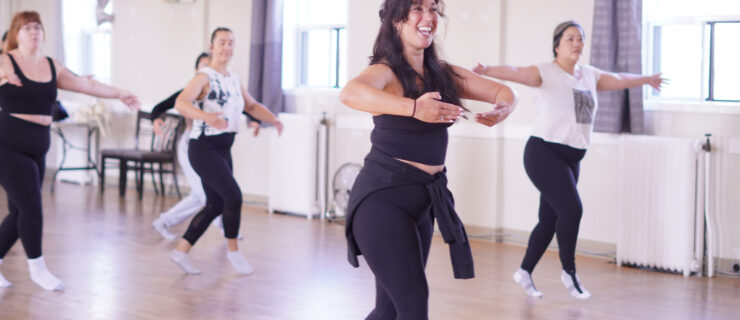How to Do Competition Season on a Budget
Diving into the competition and convention circuit with your studio’s team can be an exhilarating experience. But it frequently comes with a steep price tag, including entry fees, costume expenses, and (especially) travel costs. “The remote location of our town means we inevitably need to travel to compete,” says Mary Myers of The Dance Connection in Woodward, OK. “Dancers have to budget for gas, hotels, and food.” When Nationals roll around, that travel bill can skyrocket with the added price of plane tickets.
All this money talk have your heart racing? Don’t panic! A conservative budget doesn’t mean you have to sit out the season. Here’s how to get the most bang for your competition buck.
Plan with a Purpose
The most important money advice for comp season is also the simplest: Make a specific budget. That may seem self-explanatory, but drawing up a budget involves a good deal of planning and communication between you, your family, and your studio. Your studio director will probably know the season’s competition and convention schedule well in advance, for example, which can help you spread out expenses. “We build competition and convention prices into students’ monthly tuition, so that they don’t get hit with a surprising bill,” says Tiffany Prout-Leitao, director of Center Stage Dance Academy in eastern Massachusetts. If your studio asks for these payments à la carte, consider reaching out to the director about setting up a payment schedule instead.
If you’re really ahead of the ball, you could even help your studio director by researching some of the more cost-effective competitions or conventions in the circuit. For the most part, entry fees are a set rate, which makes cost comparisons fairly simple. Debbie Roberts of Showstopper recommends keeping an eye out for hidden costs, like overpriced performance videos and apparel, or parent “observation fees” at conventions.
Finally, planning ahead can help cap the cost of travel. “A lot of hotels will offer group rates, if you have the numbers,” Myers says. And you can combine cost-saving forces by carpooling and packing food together, too.
Think Local
Yes, a lot of competitions and conventions happen in bigger cities. But being a small-town studio dancer doesn’t mean you’ll need to fly to have a great comp experience. “Nearly every smaller city hosts competitions or conventions of some sort,” Prout-Leitao says. She encourages students to explore budget-friendly options that are within driving distance.
 Center Stage competing at Step Up 2 Dance (photo by Take 2, courtesy Showstopper)
Center Stage competing at Step Up 2 Dance (photo by Take 2, courtesy Showstopper)
You can also ask your studio director about bringing the convention experience to you. Prout-Leitao invites local talent to offer in-house workshops, which are both less expensive for students and more tailored to their needs. “They may not be the big-name choreographers students are used to seeing on TV, but that doesn’t mean they don’t have something valuable to offer,” she says.
Put the “Fun” in Fundraising
Whether it’s selling seasonal items door to door or holding car washes and bake sales, many studios offer students traditional fundraising methods to help defray some of the costs of competition. And reaching out to community businesses for support can be even more effective. “We discovered that offering an experience was a great way to raise substantial funds,” Myers says. The Dance Connection’s fundraisers have included a package deal with a local hair salon—moms could get their hair styled while their kids played and danced at the studio—and a lottery-based fine-dining experience. “These events don’t cost us a penny, because businesses happily partner with us for the exposure,” she says.
Sponsorship is another way to leverage your community to raise funds. At Center Stage Dance Academy, dancers have the opportunity to seek out sponsors, who get free advertising on T-shirts and in recital brochures in return for their support. “Dancers get to keep all of the funds from the sponsorships they solicit, so it can be very beneficial for them,” Prout-Leitao says.
Speak Up
Ultimately, each studio has its own approach to accommodating students’ financial needs, so open communication between students and instructors is key. Prout-Leitao recommends setting up a meeting involving you, your parents, and your studio director to set goals and establish a reasonable budget. “A lot of studios can offer work-studies or assistantships to students, where they do things like bookkeeping in exchange for discounted rates,” she says.
 Dancers competing at Showstopper (photo by Mid Coast Photo, courtesy Step Up 2 Dance)
Dancers competing at Showstopper (photo by Mid Coast Photo, courtesy Step Up 2 Dance)
Money matters are always sensitive, and it’s normal to be hesitant about bringing up your family’s situation. But there’s never any shame in asking for help, and most directors will appreciate your honesty. “We try to respect families’ privacy when it comes to matters of financial need,” Myers says. “Never be afraid to speak up if you need extra funding. Otherwise, we just won’t know.”
A version of this story appeared in the October 2018 issue of
Dance Spirit with the title “Competing on a Budget.”



